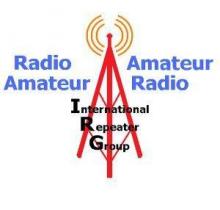New Brunswick Amateur Radio operators proved they were ready to get the message through “when all else fails” during the recent telephone outage.
On Friday August 4, 2017, Bell and other telephone carriers experienced a widespread failure of the telephone network in Atlantic Canada. Service was interrupted to many cellular and landline telephone customers and to many mobile radio services, including portions of the trunked mobile radio system (TMR) used by Ambulance New Brunswick and other public services.
New Brunswick Emergency Measures Organization (EMO) immediately began monitoring the situation and an Amateur Radio operator was en route to EMO headquarters. A province-wide call via radio was made to all Amateur Radio operators to be prepared to deploy to local Emergency Operation Centres if needed.
“Amateur Radio has a long-standing history of being a backup communication link for EMO, and this is exactly the type of situation where we can help,” said Rick MacMillan, VE9MTB, President of the International Repeater Group (IRG).
“With limited telephone service, it was a challenge to reach anyone for the call to action, but the wheels started turning immediately and Amateur Radio operators started ramping up within minutes of the outage,” added MacMillan.
“The IRG has agreements with the Department of Health, and with Horizon and Vitalité health systems to help with backup communications. Just within the last few years, Amateur Radio stations were installed in all hospital facilities to be ready ‘when all else fails’. Within an hour, there were radio operators standing by at several local hospitals, just in case the facilities lost all their communications.”
“Our repeaters are connected via a modern digital microwave network. It does not require Internet and most have backup power sources – it’s a very robust system, proven over the test of time in all types of disasters.”
Amateur Radio volunteers routinely take part in provincial and municipal emergency exercises throughout the year, and take part in regular on-air tests of equipment.
“We want to remind all Amateurs of the importance of tuning in during any type of unusual event. Having a radio ready to go could make a big difference to their neighbours who need help. Remember to keep your transmissions short and leave lots of chance for others to use the frequency if they need it during any emergency.”
“Hats off to Cory Allen, VE9CO, who immediately deployed to EMO headquarters and took inventory of other Amateurs who were on the air and their location,” said MacMillan.
“In many locations, cellular and landline telephones were dead and radio was all we had. We had over 30y Amateur Radio operators on the air throughout the province and more were joining in as the day went on. Had the failure been more serious, we would have been able to relay urgent messages to anywhere in the province and beyond.”
“We can’t say it enough – be ready with a radio and backup power to help others in case of an emergency. Emergency situations can arise suddenly and without warning and the faster we can get people on the air or positioned where they can help, the better.”
“All of our training and readiness paid off. You never know when an emergency will strike, so it pays to be prepared,” concluded MacMillan.
The International Repeater Group operates on 25 Amateur Radio repeaters across New Brunswick, with links to Nova Scotia and Prince Edward Island, and covers parts of eastern Maine. In addition to supporting the hobby of Amateur Radio, the IRG helps provide emergency communication support to New Brunswick Emergency Measures Organization, Environment Canada, River Watch and other departments, municipalities, hospital corporations and agencies.

